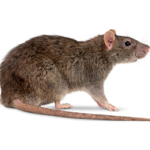Education
Know the facts and don’t believe the myths.

Did you know?
FAQs
Covering Bugs!
We hope to have answered the most common questions below, but if there is anything we have missed we’d love to hear from you.
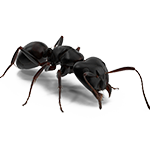
Questions on Ants
Ants have the ability to carry between 10 – 50 times their own body weight! The amount an ant can carry depends on the species. The Asian weaver ant for example, can lift 100 times its own mass.
Ants use vibrations in the ground, picked up in a special, subgenual organ located below their knees.
Ants have 2 stomachs, and it’s not because they are greedy. One stomach is used to store food for their own consumption, whilst the second stomach is used to store food to be shared with other ants. This process is known as trophallaxis and allows an ant colony to work extremely efficiently. It allows the ants who forage for food to feed those ants which stay behind to tend to the queen and the nest.
Some species of ant, such as the Polyergus lucidus, are known as slave-making ants. These ants invade neighboring ant colonies and capture its inhabitants to work for them. This process is known as ‘slave raiding’.
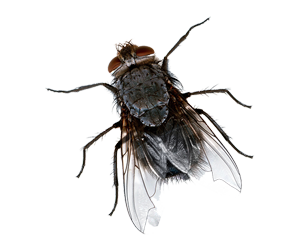
Questions on Flies
Other than flies transferring bacteria through direct contact, house flies defecate nearly every time that they land.
In 2014, NASA sent fruit flies to the International Space Station to be used in studying the long-term effects of microgravity, space flight and space radiation. These results will help inform decisions about space travel for humans.
Flies have two fat foot pads on each foot. These pads are covered in small hairs which produce a sticky substance made of sugars and oils. This glue-like substance gives them ultimate grip for walking upside down.
Because of their amazing compound eyes, flies can process visual images much faster than we can. We process about 60 images a second, whereas a fly can process nearly 3 times this! So when we think we are quick, they see our hand coming for a loooong time.
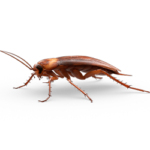
Questions on Cockroaches
The only known cockroach able to jump was discovered in the Table Mountain Nature Reserve in South Africa. This cockroach (Saltoblatella montistabularis) spends most of its life hopping around on its hind legs that are twice the length of its other legs. This cockroach can jump up to 50 times its body length in a single leap.
A cockroach can hold its breath for 40 minutes and can even survive being submerged under water for half an hour. They hold their breath often to help regulate their loss of water.
Cockroaches can run as fast as 5 km/h.
Cockroaches are cold-blooded insects and so can live without food for approximately 1 month. However, they can only survive without water for 1 week.
Yes! A cockroach can survive for up to one week without its head because of its open circulatory system and that it can breathe through little holes (called spiracles) in its body segments. The only reason that a cockroach will die without its head is because it will not be able to drink water through its mouth.
Cockroaches are believed to have originated more than 280 million years ago, in the Carboniferous era.
Yes! And there are people who love eating cockroaches! In China, cockroaches are roasted or deep fried and sold on sticks (like kebabs) on the streets. In some cultures, cockroaches are considered healthy.
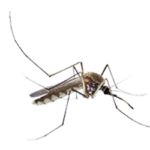
Questions on Mosquitoes
The word ‘mosquito’ is spanish for ‘little fly’.
Mosquitoes are drawn to humans by smelling the carbon dioxide that we breathe out and sensing our body heat. We can’t really do anything to change that, but we can take other measures to reduce our risk of being bitten:
i. Use insect repellents (eco-friendly, natural products if possible!)
ii. Mosquitoes are attracted to dark colours, so wear lighter colours such as yellow or white
iii. Don’t drink excessive amounts of beer! In 2011, a French study found that drinking 3 cans of beer can lead to 30% more mosquito bites!
iv. Set up a fan nearby to circulate the air around you. Mosquitoes are weak flyers and so will struggle to fly and land on you.
Mosquito saliva is what makes us itchy. This saliva is injected into the bite and used as a thinning agent so that the mosquito can suck up our blood easier and faster. This saliva is also how diseases are transmitted.
No, it is only the Anopheles mosquito that transmits malaria.
Female mosquitoes are the only mosquitoes that bite because they need the protein found in blood to develop their eggs. Male mosquitoes feed exclusively on sugar water (i.e. flower nectar).
Male mosquitoes usually live for up to 10 days, whilst females can live up to 8 weeks in ideal conditions.
Sure! Did you know that it would take approximately 1.1 million mosquitoes to drain all the blood from an adult human.
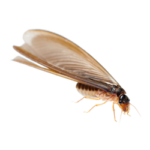
Questions on Termites
Termite queens have the longest lifespan of any insect in the world, with some queens reportedly living up to 30 – 50 years! Some queens can lay between 15 – 25 eggs per minute, resulting in 40 000 per day. If they live to up to 50 years, you can do the math on how extremely reproductive they are!
Yes! Termites are certainly edible and are rich in iron, calcium, amino acids and proteins. This makes them a highly nutritious food source. They are also extremely hygienic insects, spending a great deal of time grooming one another to prevent disease.
Termites never sleep. They build their colonies 24 hours a day, every day, until they die. Each year, termites inflict more than 5 Billion dollars’ worth of property damage.
The largest termite colony ever recorded contained over 3 million termites!
Termites use vibrations to communicate with one another. When soldiers sense a threat, they tap or bang their heads against the colony’s tunnel walls, creating vibrations to warn the rest of the colony.
